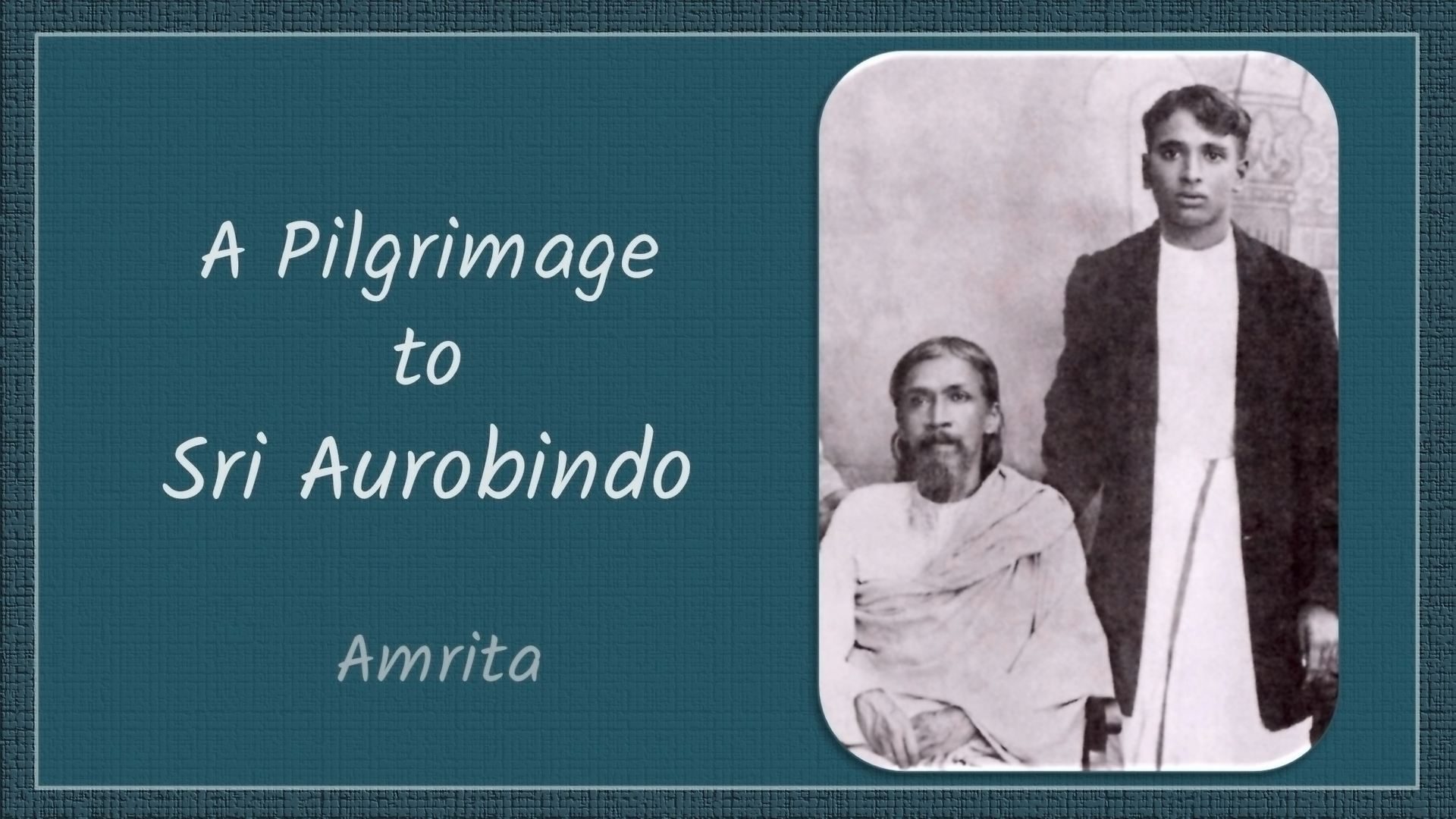
In our village and all around, four names of four great personages were being continually talked of. It was the time when Independence, Foreign Rule, Slavery were the cries that used to fill the sky. And the four great names that reached our, ears in this connection were Lajpatrai, Tilak, Bipinchandra Pal, (Lal-Bal-Pal) and Aurobindo.
Of these only one name caught my heart and soul. Just to hear the name — Aurobindo — was enough.
All the four persons were pioneers in the service of the country, great leaders of the front rank. Why then did one name only out of the four touch me exclusively? For many days to come the mystery remained to me a mystery.
In 1905 I came to Pondicherry for study. In 1910 Sri Aurobindo also arrived here. What a coincidence! He came to the very town where I had come! I was full of joy, thrilled with delight.
A strong desire arose in me that I must see Sri Aurobindo. He had been there in our town for six months, very few knew of his arrival, but I knew of it on the third day itself. My uncle was engaged in politics arid was in contact with the national workers and leaders. He came to know of the incident on the very day. In fact the number of those who knew could be counted on one’s fingers. The idea gained on me that somehow I must see Aurobindo. Hearing must be translated into vision.
Day after day, night after night, this was my sole thought. Two years passed by.
Finally one day, at about six in the evening, my friend Krishnaswami Chettiar and I started from Muthialpet, a suburb of Pondicherry, — near about our present Sports Ground and proceeded towards the beach where Sri Aurobindo’s house stood. We walked the whole distance. I was a boy of about fourteen years. Chettiar had his cycle, but he was wheeling it by him as he walked along. As it had become somewhat dark, Chettiar proposed to leave the cycle in Sri Aurobindo’s house before going to the beach. He thought it would be burdensome to carry a cycle with us and we would not be free to walk about as we liked. That was the only reason why we went to Sri Aurobindo’s house.
A word about Krishnaswami — who is no longer in the land of the living — would not be out of place. He was a well-to-do man of Muthialpet and a great devotee of Bharati — the great poet and national worker. He used to give all possible help to Bharati and attend to his needs. He knew neither English nor French, his only medium of communication was his mother-tongue, Tamil. He had a kind of instinctive respect for Sri Aurobindo because of Bharati’s association. He would now and then go and stand a little afar and have his Darshan, but naturally had no talk with him.
In the Mission Street (Rue des Missions Etrangères) close to the Dupleix Street there was a house with its front facing west. It extended from the Mission Street backward down to the Rue de la Cantine on the East. It consisted of three courtyards. Each courtyard had four verandas around it; Sri Aurobindo’s room was in the third block. The front block was occupied by Nolini, Sourin, Bejoy; Moni was in the second block. I heard it said that Sri Aurobindo would daily walk round and round the courtyard from about five in the afternoon till the other inmates returned from their playground at about eight or eight-thirty in the evening.
When Chettiar and I approached Sri Aurobindo’s house, we found the door bolted. We both knocked at it with some hesitation. All on a sudden the door opened and was left ajar. Sri Aurobindo had come quietly and turned back immediately as the door opened — it looked as if he did not want us to let us have a glimpse of his face.
In that fading twilight only his long hair hanging gracefully upon his back and his indescribably beautiful small feet caught my eyesight! My heart throbbed within me as though I had been lifted up into the region of the gods! It took me long to come back to normal composure.
I did not know what were the feelings and thoughts of Chettiar and I did not care to know!



